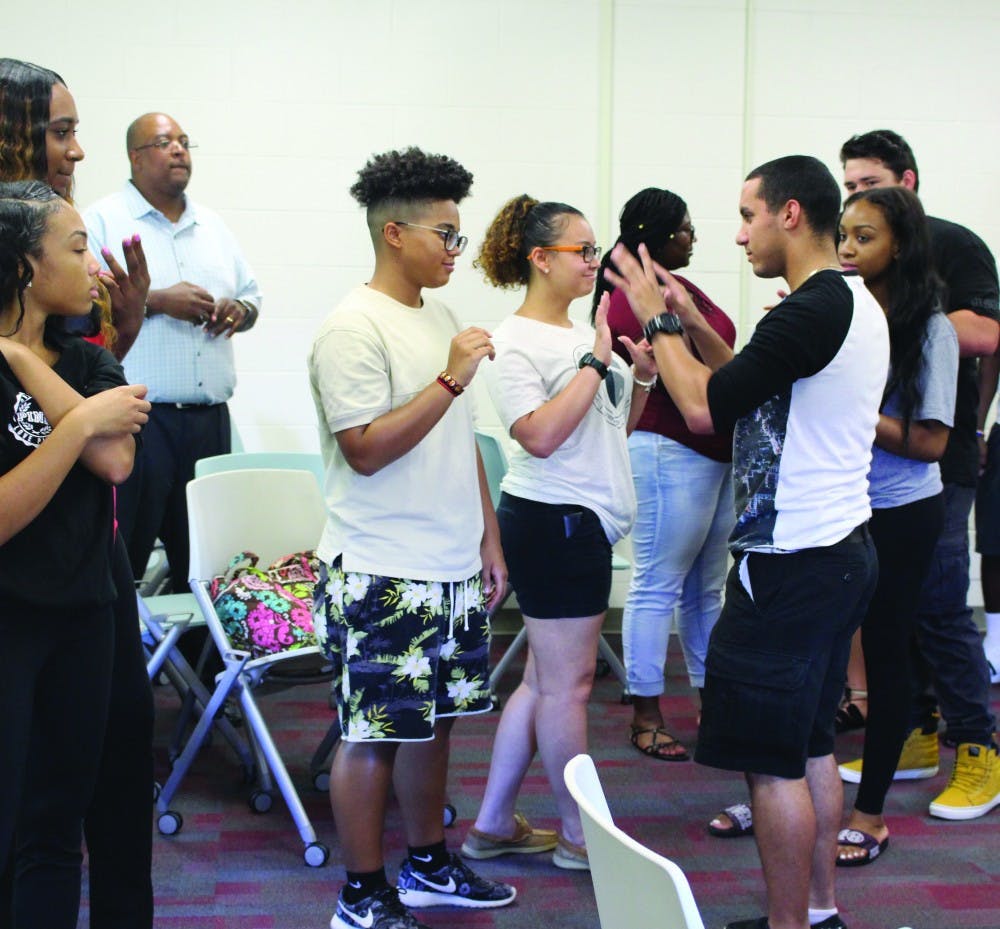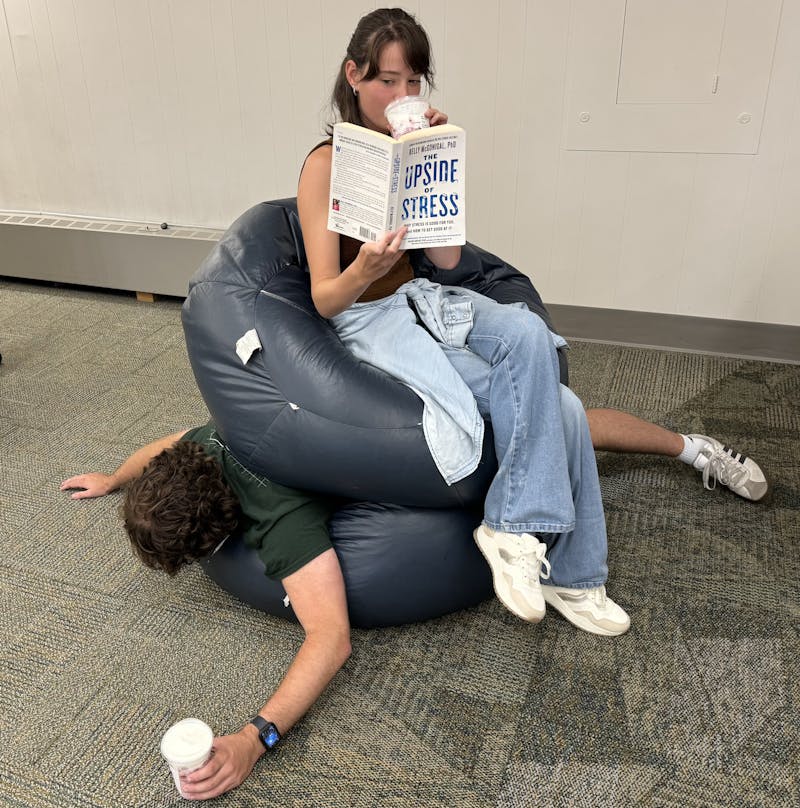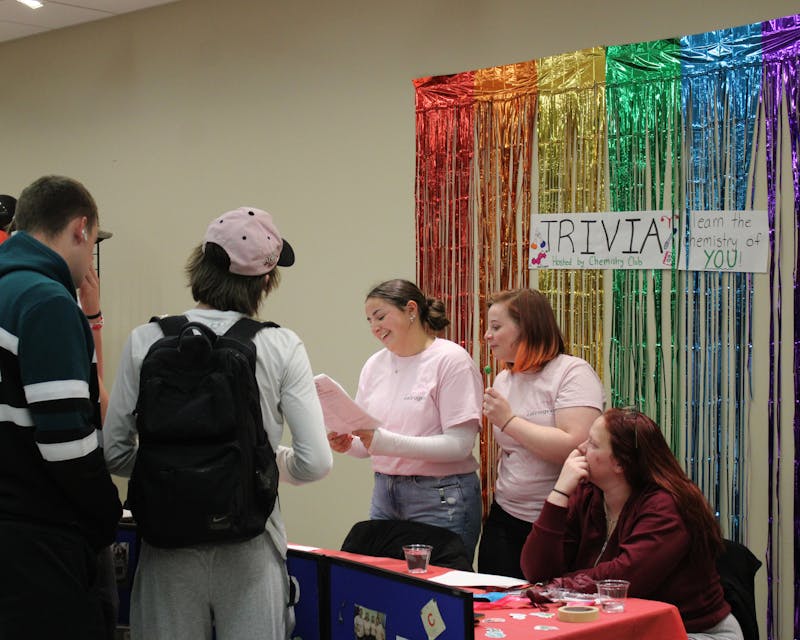As first-year and transfer students trickled onto Shippensburg University’s campus for move-in on Wednesday, students of the Martin Luther King (MLK) Academic Retention Program were finishing up the last of their workshops of their three-day early orientation.
The MLK Academic Retention program is a peer-mentoring program that targets students of color, first-generation college students and students with a high economic need. Students who join the program are paired with a mentor, who is an upperclassman. These mentors are also called FRIENDs, an acronym for furthering relationships in every new direction.
Mentors provide support for their students in the transition from high school to college. They give a listening ear when needed, words of encouragement and support, tutoring help if possible and academic resources to aid in the success of their students.
“I want to know I can go to the mentors with anything and they will lead me in the right direction,” freshman Karina Padilla said.
Although beneficial in multiple ways, mentors acknowledge the possible challenges they may face. Sarah Lecher, a first-year mentor, is concerned about first-year students adjusting.
“I believe the biggest challenge for the program and its students is that they have to adjust to not being home and sometimes a mentor just can’t solve homesickness,” Lecher said.
MLK mentors all agree the best thing they can provide for their mentees is support and compassion and hope they can ease some of the difficulties college may bring.
Gwendolyn Durham, a professor in SU’s education department, is the coordinator for the program.
Early orientation began on Sunday, Aug. 21, with students briefly meeting their mentors and moving into their dorms with their families. Later, students had lunch with their families, mentors, Durham and Sarah Stokely, Dean of Academic Engagement and Student Support.
After a short and encouraging speech from the mentors, students separated from their families to begin building their connections. Mentors sat with their mentees, played icebreakers as a group and got to know one another. Students then reconnected with their families later in the afternoon to settle into their residence halls and say their goodbyes as they prepared for an eventful week.
Throughout early orientation, students sat through workshops about financial aid, proper classroom etiquette, library resources, drug and alcohol awareness, sexual consent and team building.
“It was pretty cool,” freshman Jimmie Natee said. “ I felt like it really helped me kind of get a head start before everybody else.”
Sonya Coleman, a senior and third-year mentor of the program has high hopes for this year’s group of freshmen.
“It is proven that the program works and keeps more first generation students in college,” Coleman said. “That is all we want as mentors and as peers — to see the students strive, work hard and get their degree so that in four years we can watch them get their diploma. It’s such a good feeling when you see a mentee from previous years still walking the quad because you know you had some impact on their time here at Ship and hopefully made them stay and work as hard as they can.”




The Slate welcomes thoughtful discussion on all of our stories, but please keep comments civil and on-topic. Read our full guidelines here.